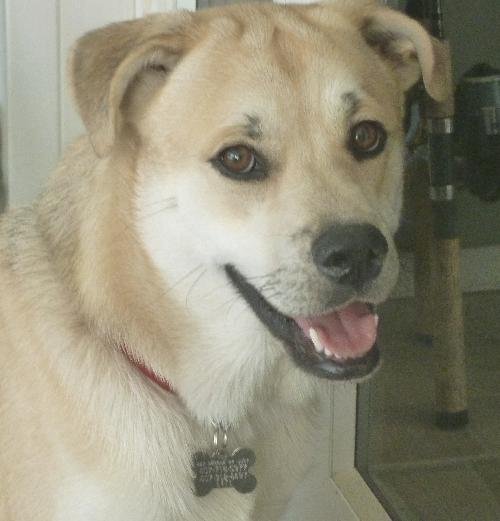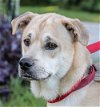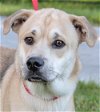Welcome to Pet Rescue By Judy!
401 South Laurel Avenue
Sanford, FL 32771
(407) 302-4497
info@petrescuebyjudy.com
O'Connor the Shepherd Blend's Web Page

| My Rescue |
| Login to Remember your Favorite Animals and Breeds! |
Name: O'Connor the Shepherd Blend
Status: Adopted!
Adoption Fee: 200.00
Species: Dog
Breed: Shepherd / Labrador Retriever (short coat)
Learn more about the Labrador Retriever.Sex: Male (neutered)
Current Size: 40 Pounds
General Potential Size: Medium
Current Age: 13 Years 7 Months (best estimate)
Activity Level: Moderately Active
Indoor or Outdoor: Indoor Only
Good with Dogs: Yes
Good with Kids: Yes
Housetrained: Yes
Microchipped: Yes
Description:
O'Connor came from a kill shelter. We're not sure what his life was like before. He seems a bit shy, but not fearful. Maybe that's just his personality. He's friendly with the staff, and doesn't seem to mind other dogs.
Foster Update 10/11:
*** According to www.dogbreedinfo.com, the Labrador Retriever is a loving, affectionate, lovable, patient dog. Once known as the "St John's Dogs," the Labrador Retriever is one of the most popular breeds in the United States. Originally from Newfoundland, Canada the Labrador was trained to jump overboard into the icy waters to haul fisherman's nets to shore. Specimens were brought to England in the 1800's by English ships coming from Labrador, where the dog's fine retrieving instincts were honed and developed. One of the best family dogs and canine companions because of their gentle, loving disposition, the highly trainable Labrador also excels in drug detection, as a guide for the blind, and service dog for the disabled. The breed is also an outstanding obedience and field trial competitor. Highly intelligent, loyal, willing, and high-spirited. Lively and good-natured, they love to play, especially in water - for they love to swim. They have an excellent, reliable, temperament and are friendly, superb with children and equable with other dogs. They crave human attention and need to feel as though they are part of the family. Labs are easily trained. These dogs are watchdogs, not guard dogs, although some have been known to guard. They have a life expectancy of 10-12 years.
O'Connor came from a kill shelter. We're not sure what his life was like before. He seems a bit shy, but not fearful. Maybe that's just his personality. He's friendly with the staff, and doesn't seem to mind other dogs.
Foster Update 10/11:
O'Connor is a sweetheart of a dog!
*Very cute and affectionate.
*Size and activity level are ideal.
*Happy to run and play when you want to, but is also happy to lie next to you and just hang out.
*Shy at first with strangers, but warms up with time and patience.
*Very good on the leash.
*Plays very well with other dogs.
*Good with kids.
*Housetrained and cratetrained- doesn't mind going in the crate and sleeps there quietly all night.
*No aggression of any kind.
*No health problems.
*Responds quickly to his name and correction.
*Don't know about cats.
*** According to www.dogbreedinfo.com, the Labrador Retriever is a loving, affectionate, lovable, patient dog. Once known as the "St John's Dogs," the Labrador Retriever is one of the most popular breeds in the United States. Originally from Newfoundland, Canada the Labrador was trained to jump overboard into the icy waters to haul fisherman's nets to shore. Specimens were brought to England in the 1800's by English ships coming from Labrador, where the dog's fine retrieving instincts were honed and developed. One of the best family dogs and canine companions because of their gentle, loving disposition, the highly trainable Labrador also excels in drug detection, as a guide for the blind, and service dog for the disabled. The breed is also an outstanding obedience and field trial competitor. Highly intelligent, loyal, willing, and high-spirited. Lively and good-natured, they love to play, especially in water - for they love to swim. They have an excellent, reliable, temperament and are friendly, superb with children and equable with other dogs. They crave human attention and need to feel as though they are part of the family. Labs are easily trained. These dogs are watchdogs, not guard dogs, although some have been known to guard. They have a life expectancy of 10-12 years.
Other Pictures of O'Connor the Shepherd Blend (click to see larger version):
 46.7k |
 67.1k |
 37.4k |
 70.4k |
 24.2k |
 48.7k |
 25k |
Copyright © Pet Rescue by Judy





